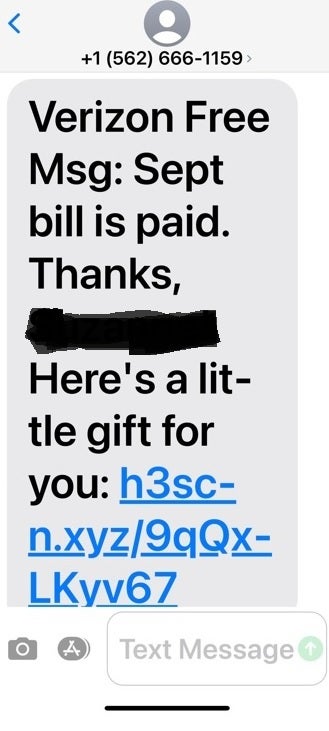Verizon subscribers are the target of a phishing expedition; do not respond to this text message
Verizon subscribers should watch out for this bogus text message trying to steal personal information
First of all, most Verizon subscribers have already paid their September bill so while it might seem that the text must be from Verizon since it knew that you paid last month’s invoice, as a Verizon customer this writer can tell you that the nation’s largest carrier doesn’t offer you a gift just for making your payment on time; heck, Verizon won’t send you a gift for paying your bill earlier than the due date.
If you get this text or something that resembles it, do not click on the link. If you do, you might be directed to a site asking you to fill out personal information such as your name, address, social security number, phone number, and other information that can be used to change your Verizon password.
With this information, you could lose control of your Verizon account while the bad actor changes the address, password, and other information. Once that is accomplished, this criminal orders expensive new phones that you’ll be paying for. The devices get sent to your account’s new address which is controlled by the crook.
If you receive a questionable text or email, call the carrier to see if it is genuine
For all the latest Technology News Click Here
For the latest news and updates, follow us on Google News.

